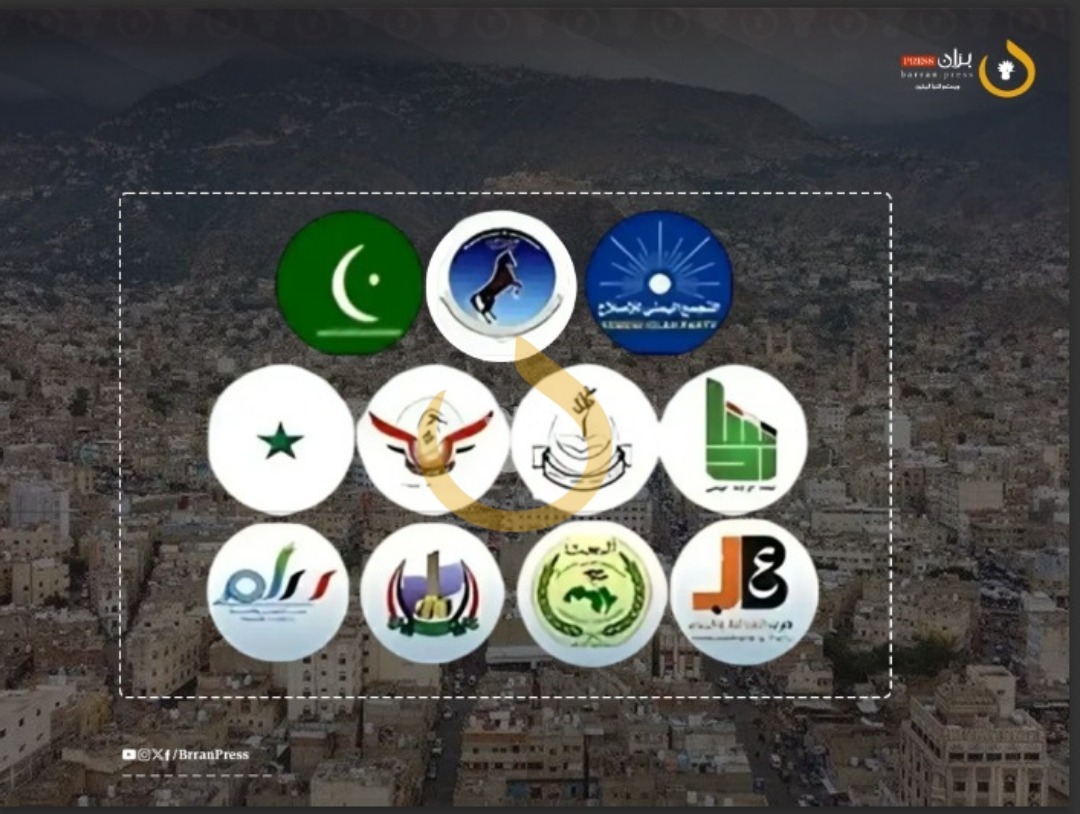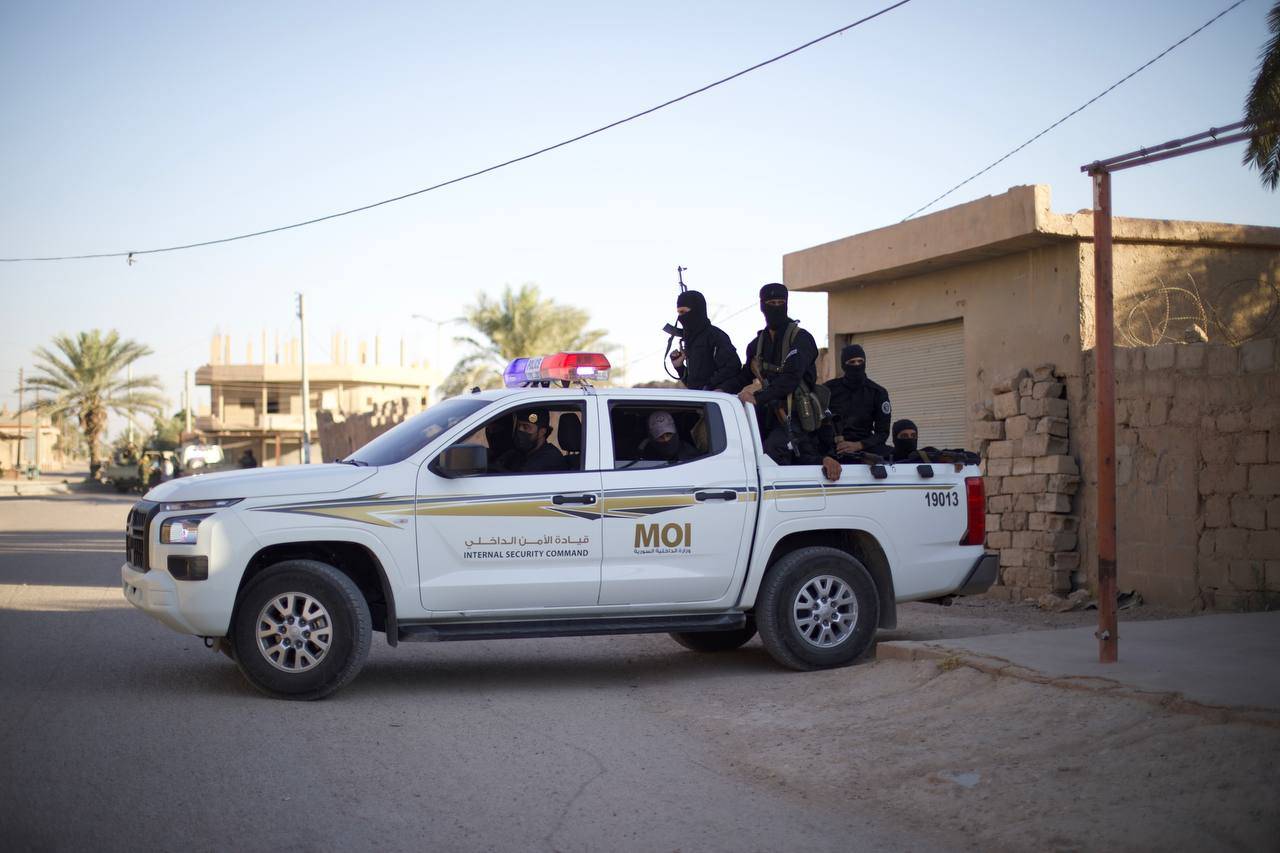
Barran Press
Political parties in the southwestern Yemeni governorate of Taiz issued a stern warning on Thursday, August 1, 2024, against any negotiations that would solidify a division of national sovereign institutions. They urged the "legitimate" government to shoulder its responsibility in leading the liberation effort and restoring the state.
In a statement, seen by Barran Press, the parties expressed their disapproval of the "extreme secrecy surrounding the roadmap being discussed," deeming it a "violation of Yemenis' right to determine their political and sovereign fate."
They asserted that any settlement must include a halt to any legislation or measures that reinforce sectarianism and religious divisions, particularly in school curricula, which they claim are eroding the national and political memory of present and future generations.
The statement emphasized that any political settlement without participation from diverse political and civil expressions in Yemen would be "meaningless and not representative of the will of the Yemeni people." They reiterated their continued support for the liberation struggle and the restoration of the Yemeni state, while opposing the Houthi project with its racist dimensions that target the political existence and dignity of the Yemeni people, as well as the values and principles of the September and October Yemeni revolutions.
The statement called on the internationally recognized Yemeni government to "assume its responsibility in leading the liberation effort and restoring the state through effective national struggle on all fronts and levels, including the negotiation front."
The political parties accused the Houthi group, listed as a terrorist organization by several countries, of "diverting negotiations into discussions about the catastrophic consequences of the war they caused, attempting to gain through concessions what they failed to achieve through their coup and war."
They stressed the need to uphold the three references – the outcomes of the national dialogue, the Gulf initiative, and UN resolutions, particularly resolution 2216 – in all dialogues and negotiations. They also underscored the importance of focusing any negotiations on ending the causes of the coup and war in Yemen to ensure the end of the coup, the restoration of the state and its institutions, and the establishment of lasting peace.
The parties highlighted the importance of holding meetings with local authorities to follow up on citizen concerns related to daily life and basic services, such as water, electricity, and education. They also emphasized the need to reinforce the concepts of republicanism and cultural immunity against the racist culture promoted by the Houthis in schools and activities, which they claim is an attempt to tear apart the social fabric and threaten national identity.
Last Tuesday, Yemen's Presidential Leadership Council Chairman Rashad al-Alimi spoke about three agreed-upon stages for implementing the "roadmap," starting with a ceasefire, followed by economic and humanitarian measures to build trust in the first stage.
During a meeting with representatives of political parties and components in Hadhramaut governorate at the Republican Palace in Mukalla, al-Alimi said that the second stage of the roadmap would involve a Yemeni dialogue to formulate the foundations for a new transitional period as the third stage.
He stated that "most of the provisions of the roadmap have been circulating in the media, but the militias continue to adopt a misleading approach regarding its contents," accusing the Houthis of "sabotaging all efforts to establish peace," according to the official Yemeni news agency Saba.
On July 23, the office of the UN envoy to Yemen stated that the internationally recognized Yemeni government and the Houthi group, listed as a terrorist organization by several countries, had agreed on several measures to de-escalate tensions regarding the banking sector and Yemenia Airways.
According to a statement from the envoy's office, the agreement included "revoking recent decisions and measures against banks by both sides and refraining from any future similar decisions or measures. Additionally, it includes the resumption of Yemenia Airways flights between Sana'a and Jordan, increasing the number of flights to three daily, and operating flights to Cairo and India daily or as needed."
The agreement also stipulated that meetings would be held to address administrative, technical, and financial challenges facing the company, and that discussions would begin on all economic and humanitarian issues based on the roadmap.
"Grundberg" highlighted the important role played by Saudi Arabia in reaching this agreement, affirming the UN's readiness to work with both sides to implement the agreed-upon measures. He offered to facilitate communication with authorities in Jordan, Egypt, and India.
As is customary with every agreement, the Yemeni government swiftly implemented its commitments, halting the measures taken against banks, while Yemenia Airways resumed flights from Sana'a International Airport to Jordan, Cairo, and India for the first time since 2014.
Given the Houthis' track record of reneging on and circumventing agreements, the government side appears more pessimistic about the Houthis' seriousness in achieving a genuine breakthrough in the economic file. During a meeting chaired by Presidential Leadership Council Chairman Rashad al-Alimi with the leadership of the local authority in Hadhramaut, Council member Othman Majali stated that "the Council is fully aware of the Houthis' intentions and their terrorist behavior."
Majali emphasized that the Presidential Leadership Council's commitment to de-escalation "comes within the framework of giving the regional and international community a chance to revive the path to comprehensive and just peace in accordance with its declared references."
On December 23, 2023, the United Nations announced that the Yemeni parties had reached understandings to commit to a set of measures, including implementing a ceasefire encompassing all of Yemen, taking steps to improve living conditions in Yemen, and engaging in preparations for the resumption of a comprehensive political process under UN auspices.
The roadmap and peace efforts in Yemen have been stalled by attacks carried out by the Houthi group, listed as a terrorist organization by several countries, against commercial cargo ships in the Red Sea, the Arabian Sea, and the Gulf of Aden since last November.





